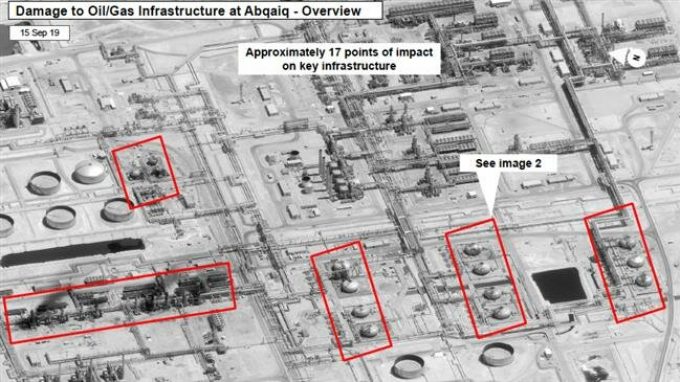Risk Intelligence: Houthis lack resources for Med attacks
Houthi threats to widen their area of operations amount to bluster and propaganda, and “should ...
FWRD: UPS AND DOWNSCHRW: NEW RECORDCHRW: BUILDING ON STRENGTHFDX: GETTING OUTAAPL: AI POWERDSV: NEOM PROJECT RISK HLAG: 'USTR RISK' HLAG: INVENTORY LEVELSHLAG: CRYSTAL BALLHLAG: CEO ON SPOT RATES IN THE CURRENT QUARTERHLAG: UNIT COST PERFORMANCEHLAG: QUESTION TIMEHLAG: SECOND HALF OUTLOOK HLAG: SPOT RATES DYNAMICS HLAG: STRONG PERFORMANCE
FWRD: UPS AND DOWNSCHRW: NEW RECORDCHRW: BUILDING ON STRENGTHFDX: GETTING OUTAAPL: AI POWERDSV: NEOM PROJECT RISK HLAG: 'USTR RISK' HLAG: INVENTORY LEVELSHLAG: CRYSTAL BALLHLAG: CEO ON SPOT RATES IN THE CURRENT QUARTERHLAG: UNIT COST PERFORMANCEHLAG: QUESTION TIMEHLAG: SECOND HALF OUTLOOK HLAG: SPOT RATES DYNAMICS HLAG: STRONG PERFORMANCE

Amid the fury at the attacks on the Saudi oil refinery that is the world’s largest petroleum processing plant and produces 6m barrels a day, this report from Splash247 outlines the immediate effect on one of the largest consumers of oil – the shipping industry. The attacks, which took place over the weekend, followed a week in which some of the world’s largest bunker ports had been reporting low stocks of high-sulphur fuel oil (HFSO), which is set to be banned from 1 January next year under the new IMO low sulphur regulations unless the vessel is fitted with a scrubber exhaust cleaning system. Splash247 reports that the price of Brent crude saw its largest ever one-day gain today, and that shipowners that have invested in scrubbers could be the most vulnerable to the continuing fall out in the markets.



Comment on this article